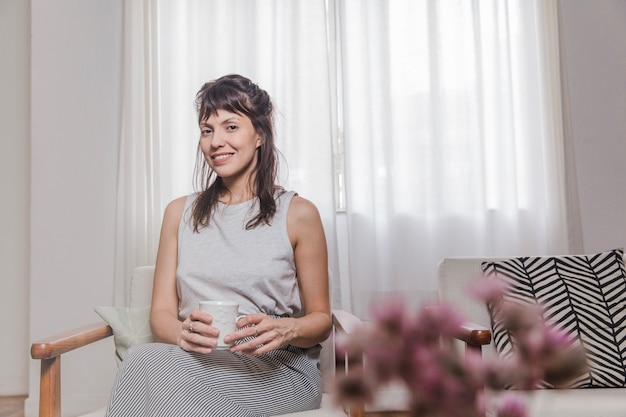
Night sweats, hot flashes, mood swings – menopause can be a really baffling and challenging time for women. Andrea McLean, well-known from Loose Women, has a new book out called Confessions of a Menopausal Woman, where she shares her thoughts and advice.
Andrea McLean, the popular TV presenter, is on a mission to talk openly about menopause. She believes it’s a major part of every woman’s life that doesn’t get the attention it deserves because most people don’t want to discuss it. According to McLean, society still sees menopause as a sign that a woman is old and out of commission, but it shouldn’t be that way.
In September 2016, McLean announced on Loose Women that she was having a hysterectomy, which would keep her off the show for a while. A hysterectomy involves removing the uterus and sometimes other parts like the ovaries, which can trigger early menopause. McLean has been candid about her surgery and has even shared her menopausal symptoms on the show.
Now 49, McLean shares in her book that she’s received thousands of messages from women going through similar experiences, either preparing for surgery, recovering, or simply seeking support for menopause. She realized that many women in the UK are living in fear and confusion about menopause.
Common symptoms like irregular periods, hot flashes, night sweats, and mood swings are all part of the process. Menopause typically happens between ages 45 and 55, with the average age being 51. Women are born with a certain number of eggs, and as they ovulate over the years, these eggs decrease. The menopause officially begins when most of the eggs are gone, causing a drop in estrogen levels, which leads to common symptoms like hot flashes and night sweats.
Menopause also impacts the skin and hair due to hormonal changes. But McLean insists it’s not just about the medical definitions; it’s about the real-life experiences of women. She emphasizes that every woman’s experience with menopause is unique and symptoms can vary.
McLean lists common symptoms, such as hot flashes, sleepless nights, erratic periods, brain fog, mood changes, anxiety, depression, exhaustion, itchy skin, migraines, and aching joints. There are actually 34 signs of menopause, and women may have all or just a few of them. Keeping track of symptoms and consulting with a doctor is crucial.
Menopause can happen even in the late 30s up to the early 50s, and it’s important not to dismiss symptoms just because one is “too young.” Andrea advises keeping a diary of symptoms to discuss with a doctor.
She also stresses that menopause doesn’t mean life is over. It’s a time to reflect and make sure you’re living in a way that makes you feel your best. Simple changes like getting enough sleep, eating better, and taking time out for yourself can make a big difference.
Understanding one’s own physical and mental health is key, and it’s also essential to notice how loved ones react to changes. Sometimes, friends and family can provide valuable insight into how one’s behavior might have changed.
HRT (hormone replacement therapy) is a common treatment for menopause symptoms, but it’s not for everyone. It’s important to discuss with a GP whether it’s suitable. McLean stresses that while menopause can change you, it doesn’t define you.
There are many women who embrace their age and thrive, proving that it’s just one part of life’s journey. Even if you hit rough patches, it’s possible to keep moving forward. McLean reminds us that menopause is just a tiny slice of life’s pie chart – we still have many incredible experiences ahead.

